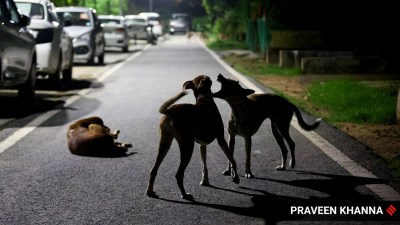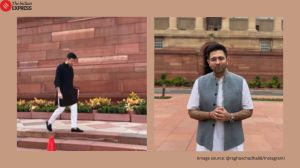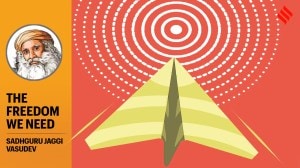Bihar prohibition: Four-fold jump in drug cases since 2016 alcohol ban
The data also shows a significant jump in seizures of drugs such as charas, smack (heroin), brown sugar (adulterated heroin) and doda (opium husk), which, doctors say, are being used by addicts as substitutes for alcohol.
 Bihar’s Patna Medical College and Hospital has been treating multiple patients each month over the last six-seven years for substance abuse. (Express photo by Chandra Verma)
Bihar’s Patna Medical College and Hospital has been treating multiple patients each month over the last six-seven years for substance abuse. (Express photo by Chandra Verma)By Chandra Verma
Over the last eight years, Bihar has recorded a nearly four-fold rise in drug-related cases – from 518 cases in 2016 to 2,411 in 2024 — a jump, enforcement authorities and doctors say, that coincides with the state’s ban on alcohol in 2016.
According to data shared by the Economic Offences Unit (EOU) of the Bihar Police, the number of those arrested under the Narcotic Drugs and Psychotropic Substances (NDPS) Act, 1985, too, went up in this period – from 496 in 2016 to 1,813 in 2024. As of May this year, 569 cases were registered under the NDPS Act and 577 persons have been arrested.
The data also shows a significant jump in seizures of drugs such as charas, smack (heroin), brown sugar (adulterated heroin) and doda (opium husk), which, doctors say, are being used by addicts as substitutes for alcohol.
 The de-addiction centre at the Patna-based Indira Gandhi Institute of Medical Sciences (IGIMS). (Photo by Chandra Verma)
The de-addiction centre at the Patna-based Indira Gandhi Institute of Medical Sciences (IGIMS). (Photo by Chandra Verma)
Confirming a rise in substance abuse across the state, Manavjit Dhillon, Deputy Inspector General, Economic Offences Unit (EOU), Bihar Police, said, “Since prohibition, we have seen an increase in the consumption of ganja in rural areas and smack in urban areas. Youngsters in urban areas are increasingly experimenting with synthetic narcotics such as meth, brown sugar and cough syrups (they contain codeine, an opioid).”
The DIG said opium, coco leaf (used to make cocaine), manufactured drugs, etc., as defined under Section 2 of the NDPS Act are not classified as intoxicating drugs under the Bihar Prohibition and Excise Act that was notified on October 2, 2016. “This means that all cases related to the recovery of these items will be registered under the NDPS Act and not the Prohibition Act,” he said.
Doctors of at least two leading government hospitals in the state capital — the Patna Medical College and Hospital (PMCH), and the Indira Gandhi Institute of Medical Sciences (IGIMS) — confirmed a rise in the number of persons addicted to drugs, sleeping pills, painkillers and other synthetic substances over the past last six-seven years. At the Patna-based IGIMS, Dr Rajesh Kumar, the head of psychiatry, said, “With the ban on alcohol, most addicts in Bihar have switched to items that are readily available and cheaper.”
 Dr Rajesh Kumar is the head of psychiatry at the Patna-based Indira Gandhi Institute of Medical Sciences (IGIMS). (Photo by Chandra Verma)
Dr Rajesh Kumar is the head of psychiatry at the Patna-based Indira Gandhi Institute of Medical Sciences (IGIMS). (Photo by Chandra Verma)
Doctors at PMCH and IGIMS confirmed treating at least 200 such patients every month over the last six-seven years. They said most of these patients are addicted to drugs such as heroin, brown sugar, cannabis, smack, doda, etc or inhalants (glue, whiteners, bonfix adhesives, etc).
The EOU data on drugs reveals that the biggest jump in seizure has been in the case of doda (from 15 kg in 2016 to 5,235 kg in 2024), charas (from 88 kg in 2016 to 277 kg in 2024, a rise of over 200%), and smack (from 220 gm in 2016 to 7 kg in 2024). The EOU recorded a big jump in seizures of chemical drugs or syrups. In 2016, the EOU seized 29,861 bottles, 5,116 tablets and 4,945 injections against 1.17 lakh bottles, 90,150 tablets and 63,208 injections in 2024. While 126 persons were convicted in 84 NDPS cases in 2017, it rose to 474 persons in 349 such cases in 2024. As of June 2025, 284 persons have been convicted in 203 such cases.
The writer is an intern at The Indian Express







